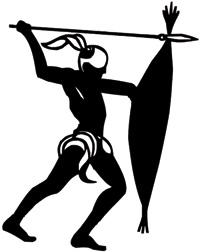On December 16, 1961, the African National Congress (ANC) established Umkhonto weSizwe (MK), known as the “Spear of the Nation,” as its armed branch. This date was symbolically chosen as it coincided with the anniversary of the Battle of Blood River in 1838, where the Afrikaners defeated the Zulus.
The inception of MK was a response to escalating actions by the South African government against the country’s black population, including oppressive laws and harsh measures. The ANC, in alliance with the South African Communist Party (SACP) and other groups such as the South African Indian Congress, the Coloured People’s Congress, and the Congress of the Democrats, had primarily engaged in non-violent resistance. They aimed to compel the government to acknowledge the rights of Black South Africans. However, by the late 1950s and early 1960s, it became apparent that this approach was insufficient against the government’s intensified segregationist policies.
The ANC, historically an advocate of non-violence under the leadership of Chief Albert Luthuli, faced a challenging shift in strategy. The decision to form MK was complicated by the ANC’s ban under the Unlawful Organisations Bill of 1960, risking further repercussions for its alliance.
The transition towards armed resistance was driven by the realization among some ANC and SACP members that passive resistance was failing to enact significant political change. This shift was also influenced by the modest impact of earlier campaigns, such as the Defiance Campaign of 1952 and the Western Areas Campaign. During the ANC’s Annual National Congress in June 1955, the adoption of the Freedom Charter marked a shift in the ANC’s image from an African-centric organization to one embracing a broader, multi-racial identity. However, this move also caused internal divisions, leading to the formation of the Pan Africanist Congress (PAC) by members like Robert Sobukwe.
The turning point came with the Sharpeville Massacre on March 21, 1960, where a peaceful anti-pass demonstration organized by the PAC was met with lethal force, resulting in 69 deaths and 186 injuries. Similar violent responses occurred in the Langa township in the Western Cape. These events, along with the subsequent banning of the ANC and SACP, catalyzed the decision to move from passive resistance to armed struggle. By 1960, following the Sharpeville Massacre and the banning of key liberation groups, the ANC and SACP were persuaded that the time had come to escalate their resistance tactics.

















